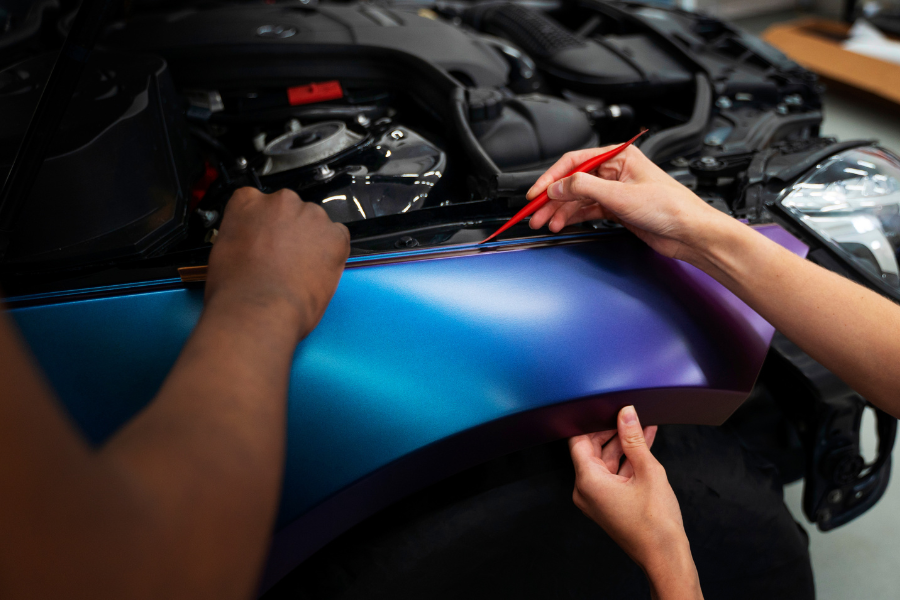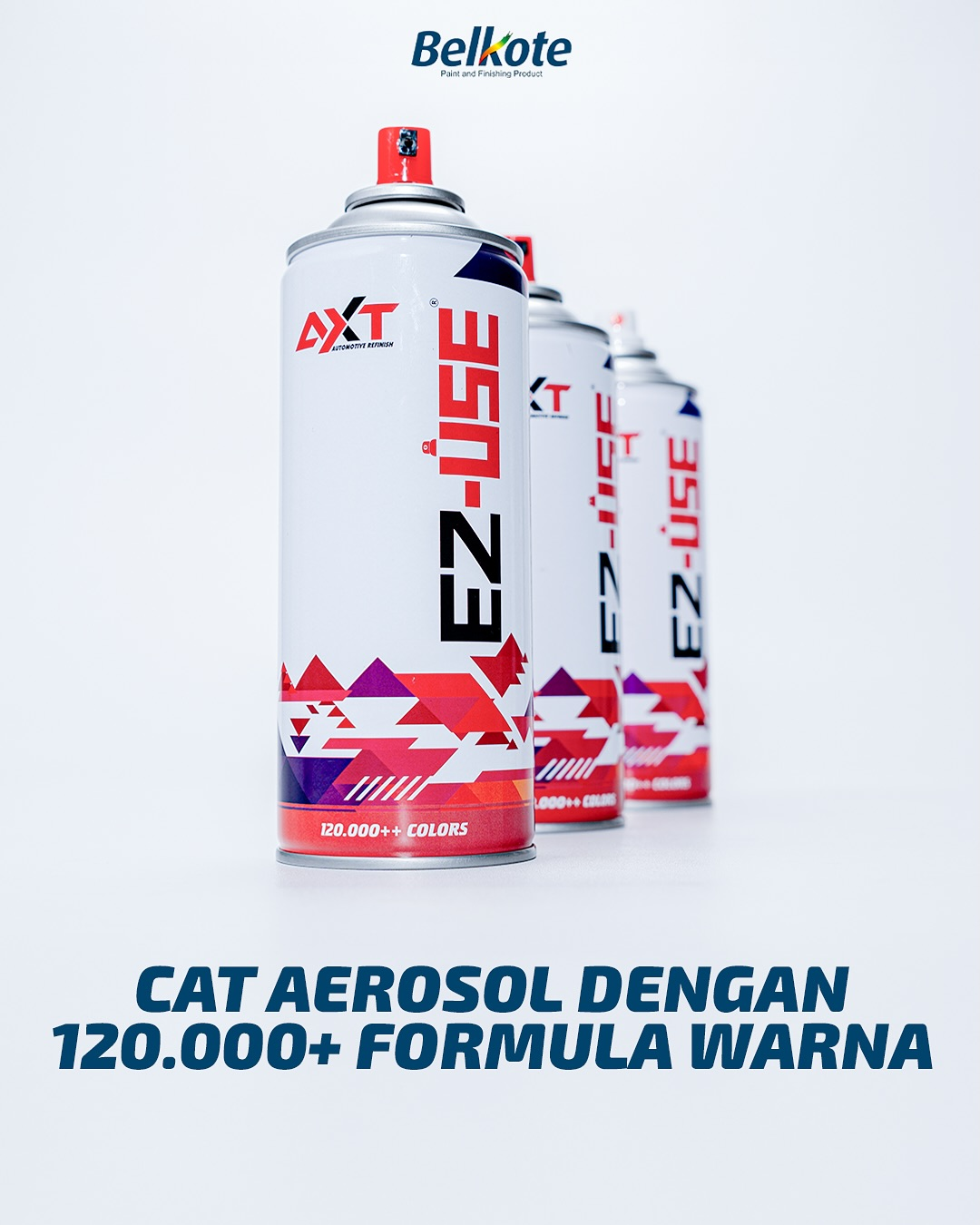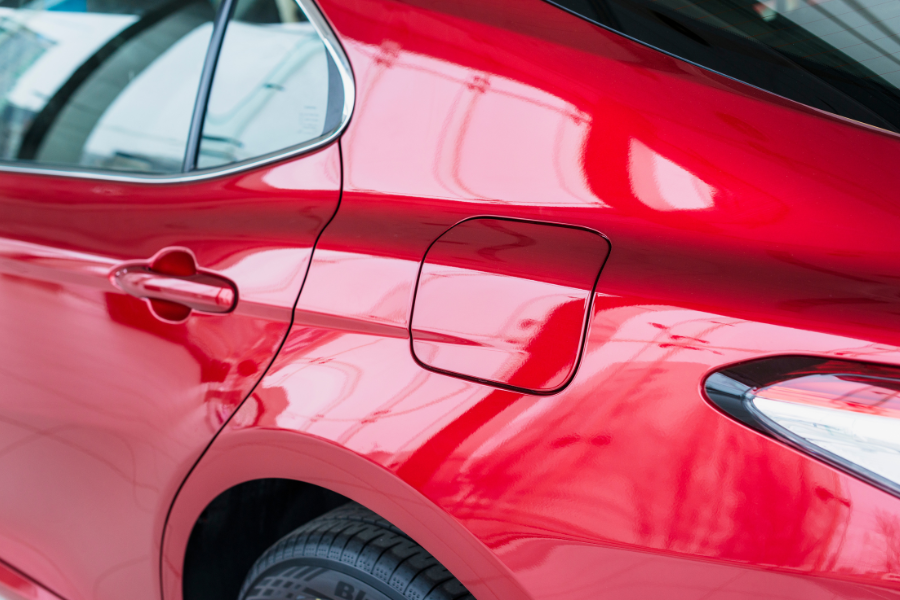Published 24 October 2025
What Are the Effects of Ethanol on Car Paint? Here’s the Explanation
In recent times, ethanol-blended fuel has become a hot topic in the automotive world. Ethanol is known as a more eco-friendly additive since it comes from plant-based sources, such as sugarcane or corn.
However, behind its benefits, many vehicle owners have begun to wonder about the impact of ethanol use on car components—especially on the exterior paint layer. This article briefly explains how ethanol affects car paint and how to prevent damage to maintain your vehicle’s appearance at its best.
The Trend of Ethanol Use in Fuel
Ethanol has long been used as a fuel additive to help reduce carbon emissions. Several countries have even implemented fuel standards with specific ethanol content, such as E10 or E20. In Indonesia, the discussion about adopting ethanol-based fuel is growing stronger in line with the government’s efforts toward sustainable energy.
From an environmental standpoint, ethanol in fuel offers many advantages. Besides reducing dependence on fossil fuels, the emissions produced are also cleaner. However, in the automotive world, this introduces new challenges, particularly concerning the effects of ethanol on vehicle components that come into direct contact with fuel.
Read also: Belkote Vehicle Spray Paint: Easy, Complete Color Options, The Right Choice
The Effects of Ethanol on Automotive Components
Chemically, ethanol is hygroscopic—it easily absorbs moisture from the air. This property can cause corrosion on metal parts and affect the elasticity of rubber or plastic in the fuel system. For this reason, modern vehicles are generally designed to be compatible with ethanol fuel.
However, its effects don’t stop at the engine system. Ethanol can also have indirect impacts on a vehicle’s exterior surface, particularly the car paint, when fuel splashes occur during refueling or small spills happen around the tank area.
The Effects of Ethanol on Car Paint
Car paint serves as the primary protective layer against various external factors—sunlight, rain, and chemicals. When ethanol (etanol) comes into contact with paint, the solvent it contains can soften the protective clear coat layer. As a result, the paint may appear dull, streaked, or even peel off if not cleaned immediately.

These effects may not be visible after a single exposure, but repeated contact can accelerate the degradation process. Vehicles frequently refueled at stations with less precise nozzles, for example, are more likely to develop stains or fine marks around the fuel cap.
Additionally, ethanol-based cleaning solutions should also be used with caution. Some quick-clean products contain high levels of ethanol that can damage the paint layer if overused.
How to Protect Car Paint from Ethanol Exposure
Prevention is always better than repair. Here are a few simple steps to maintain your car paint’s durability, especially against chemical exposure like ethanol:
-
Clean Fuel Spills Immediately: After refueling, make sure no fuel residue drips around the fuel cap. Wipe it with a soft microfiber cloth before it dries.
-
Use Automotive-Grade Soap: To prevent the effects of ethanol on car paint, avoid cleaners with high alcohol content. Choose pH-balanced car shampoos that are safe for paint surfaces.
-
Apply Extra Protection: Coating or wax layers help strengthen resistance against chemicals and UV heat.
-
Choose High-Quality Paint: Paint formulated for chemical resistance can better withstand extreme weather changes and ethanol exposure.
With proper maintenance, car owners can keep their vehicles shiny without worrying about the side effects of modern fuels.
Read also: Protect Your Car from Floods with High-Quality Anti-Rust Car Paint
Ethanol-Resistant Automotive Paint Solutions from Belkote
For workshops or vehicle owners seeking maximum protection, choosing a paint product designed with advanced technology is the key solution. Belkote, along with its AXT product line, offers automotive paints with exceptional chemical resistance and adhesion strength.

These products are formulated to withstand solvents and mild chemicals, including the effects of ethanol on car paint. Moreover, they deliver a smooth, long-lasting gloss finish—ideal for refinishing or repainting daily-use vehicles. To ensure this quality, Belkote has conducted solvent-resistance testing.
With a combination of high-quality materials and professional application, cat Belkote / AXT automotive paints help maintain a vibrant car color even under frequent exposure to harsh environmental conditions.
